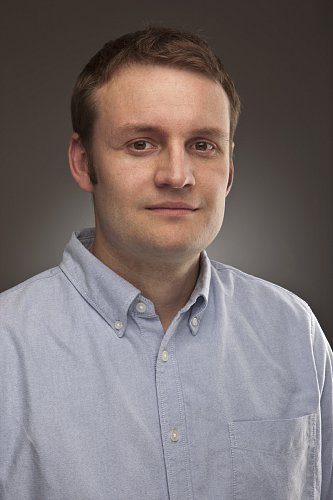doc. PhDr. Vít Střítecký, M.Phil., Ph.D.
doc. PhDr. Vít Střítecký, M.Phil., Ph.D.

Působiště:
- Katedra bezpečnostních studií
E-mail: stritecky@fsv.cuni.cz , vit.stritecky@fsv.cuni.cz
Telefon: +420 267 224 246
Místnost: č. B327, Jinonice, budova B
ResearcherID: E-9782-2018
Scopus Author ID: 35849276700
ORCID ID: 0000-0003-1778-3657
Rok vydání
Monografie
- STŘÍTECKÝ, Vít. Violent Georgia : Developmentalist Trajectories of the Ethnopolitical Mobilisation. 1st ed vyd. Prague: Karolinum, 2015. 127 s. ISBN 978-80-246-3233-9.
- HYNEK, Nik - STŘÍTECKÝ, Vít - KARMAZIN, Aleš - KARÁSEK, Tomáš - ALLISON, Roy - BLADAITÉ, Neringa - ŠEŠELGYTĖ, Margarita - TSKHAY, Aliya - BURANELLI, Filippo Costa - SPANGER, Hans-Joachim - ZIELONKA, Jan - RUPNIK, Jacques - HYNEK, Nikola. Hybridisation of Political Order and Contemporary Revisionism. 1st edition vyd. Oxon: Routledge, 2023. 184 s. ISBN 978-1-03-230350-5.
Kapitoly v monografiích
- STŘÍTECKÝ, Vít. Europeanists in spite of themselves : energy as an Atlanticist priority of the Czech EU Presidency. In: DRULÁK, Petr - ŠABIČ, Zlatko. The Czech and Slovenian EU Presidencies in a Comparative Perspective. 1st ed vyd. Dordrecht: Republic of Letters Publishing, 2010, s. 163-183. ISBN 978-90-8979-050-7.
Články
- STŘÍTECKÝ, Vít - ŠPELDA, Petr. Analýza aktivit elektronického džihádu v prostoru sociálních médií. Mezinárodní vztahy. 2017, 52(4), 33-47. ISSN 0323-1844.
- STŘÍTECKÝ, Vít - ŠPELDA, Petr. Establishing the Complexity of the Islamic State's Visual Propaganda. Central European Journal of International and Security Studies. 2017, 11(4), 66-84. ISSN 1802-548X.
- STŘÍTECKÝ, Vít - HYNEK, Nikola. Comparing global security regimes: a power-analytical synthesis. International Politics. 2018, 55(3-4), 503-517. ISSN 1384-5748. UT-WOS link
- ŠPELDA, Petr - STŘÍTECKÝ, Vít. Security practices in AI development. AI & Society. 2025, 40(6), 4869-4879. ISSN 0951-5666. UT-WOS link
- ŠPELDA, Petr - STŘÍTECKÝ, Vít. Learnability of state spaces of physical systems is undecidable. Journal of Computational Science. 2024, 83(December 2024), 1-7. ISSN 1877-7503. UT-WOS link
- ŠPELDA, Petr - STŘÍTECKÝ, Vít - SYMONS, John. On the Need for Multiple, Independent Fact-Checking and Scoring Facilities: A Reply to Gerhard Schurz. Social Epistemology Review and Reply Collective. 2024, 13(5), 1-4. ISSN 2471-9560.
- ŠPELDA, Petr - STŘÍTECKÝ, Vít. Why and how to construct an epistemic justification of machine learning?. Synthese. 2024, 204(2), 1-24. ISSN 0039-7857. UT-WOS link
- ŠPELDA, Petr - STŘÍTECKÝ, Vít - SYMONS, John. No-Regret Learning Supports Voters’ Competence. Social Epistemology. 2024, 38(5), 543-559. ISSN 0269-1728. UT-WOS link
- ŠPELDA, Petr - STŘÍTECKÝ, Vít. Human Induction in Machine Learning: A Survey of the Nexus. ACM Computing Surveys. 2021, 54(3), 1-18. ISSN 0360-0300. UT-WOS link
- ŠPELDA, Petr - STŘÍTECKÝ, Vít. The future of human-artificial intelligence nexus and its environmental costs. Futures. 2020, 117(March), 1-5. ISSN 0016-3287. UT-WOS link
- ŠPELDA, Petr - STŘÍTECKÝ, Vít. What Can Artificial Intelligence Do for Scientific Realism?. Axiomathes. 2021, 31(1), 85-104. ISSN 1122-1151. UT-WOS link
- HYNEK, Nikola - STŘÍTECKÝ, Vít. Political Revisionism: Old and New. Europe-Asia Studies. 2020, 72(6), 931-939. ISSN 0966-8136. UT-WOS link
- ŠPELDA, Petr - STŘÍTECKÝ, Vít. Expanding Observability via Human-Machine Cooperation. Axiomathes. 2022, 32(Suppl. 3), 819-832. ISSN 1122-1151. UT-WOS link
- DITRYCH, Ondřej - HANDL, Vladimír - HYNEK, Nikola - STŘÍTECKÝ, Vít. Understanding Havel?. Communist and Post-Communist Studies. 2013, 46(3), 407-417. ISSN 0967-067X. UT-WOS link
- DITRYCH, Ondřej - HYNEK, Nikola - RUZICKA, Jan - STŘÍTECKÝ, Vít. Introduction. International Politics. 2018, 55(3-4), 349-351. ISSN 1384-5748. UT-WOS link
Příspěvky v konferenčních sbornících
https://is.cuni.cz/studium/predmety/index.php?do=search&nazev=&kod=&match=substring&srch_nazev=0&srch_nazev=1&fak=11000&ustav=&sekce=&trida=&klas=&kompetence=&pvyjazyk=&sem=&pocet=20&ujmeno=st%C5%99%C3%ADteck%C3%BD&utyp=3&b=Hledej
Artificial Intelligence: Policy and Society
Online/Offline Revisionism and Conspiracy Theories
2018 – 2019: Evolution of unmanned technologies and their societal perception: analysis of opportunities and minimization of risks (principle investigator)
2018 – 2022: Human-Machine Nexus and Its Implication for International Order, Charles University Centre of Excellence, (co-author)
2016 – 2018: Anatomy of Revisionism and Its Impact on (Sub-)Regional Institutionalisations and Alliances, Grant awarded by the Czech Science Foundation (co-author)
2012 – 2017: Global Prohibition Regimes, Grant awarded by the Czech Science Foundation (co-author)
2010-2012: Security multilateralism as an Institution, Grant awarded by the Czech Science Foundation (co-author)
2012: The potential of the Czech-Polish Defence Cooperation, the Czech-Polish Diplomatic Platform, Inter-MFA initiative
2011: The Czech involvement in the EU security and defence policy (industrial and R&D potential). Project commissioned by the Ministry of Foreign Affairs (principal investigator)
2011: The strategic and industrial impact of missile defence project for the EU, Strategic Report Commissioned by the European Parliament (with Nik Hynek, Ondrej Ditrych)
2009 – 2011: CRESCENDO, Coordination action on Risks, Evolution of Threats and Context Assessment by an Enlarged Network for R&D Roadmap, EU FP 7 security (Institute of International Relations)
2007- 2011: The Czech Republic in International Politics, Institute of International Relations, Grant commissioned by the Ministry of Education of the Czech Republic
2006 - 2008: Transnational Terrorism and the Rule of Law, EU FP6 security (Institute of International Relations)
2006 - 2008: Economic Theory of Political Markets, Research Grant of the Czech Science Foundation, holder: Institute of Economic Studies, Charles University (Ph.D. student representing Institute of Political Studies)
Vít Střítecký is an Associate Professor in International Security and Head of Department of Security Studies. His research focuses on policy issues associated with machine learning. He is most interested in regulatory approaches that emphasize the role of standardization as a way of addressing safety and security issues. More generally, his expertise lies at the interface between security and technology, which connects the courses he teaches.
Artificial Intelligence and Society; Online/Offline Revisionism and Conspiracy Theories





